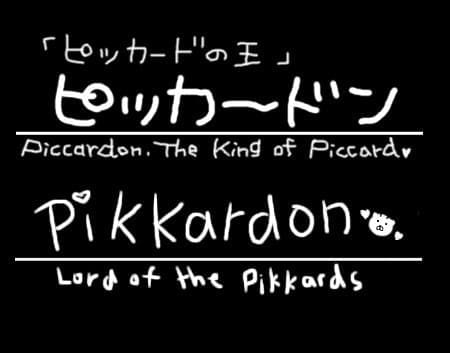It’s time for our first 2017 End-of-the-Year Q&A Extravaganza! We’ve got a bunch of these we’ll be posting over the holiday break, so please look forward to them. Now, let’s roll right in!
We have answers from:
Ken Berry, Executive Vice President / Team Leader
John Wheeler, Assistant Localization Manager
Nick Colucci, Localization Editor
Liz Rita, QA Tester
Brittany Avery, Localization Producer
Thomas Lipschultz, Localization Producer

Question: Has selling your games on PC worked out for you so far? I know supporting the PC platform is a relatively recent choice for XSEED. – @Nate_Nyo
Ken: Being on PC has been great for us as it allows us to reach anyone anywhere in the world regardless of region or console. We were probably one of the earlier adopters in terms of bringing content from Japan to PC as we first published Ys: The Oath in Felghana on Steam almost 6 years ago in early 2012.
Brittany: I love working on PC. The work involved is greater than working on console, but I feel like it’s a bigger learning experience, too. For console, the developers normally handle the graphics after we translate them, and they do all the programming and such. For PC, everything falls on us. I wasn’t that experienced with Photoshop in the beginning, but I think I’ve gotten a lot better with it over the years. We can also receive updates instantly, and since I talk with our PC programmer through Skype, it’s easier to suss out our exact needs and think of ideas to improve the game or bring it to modern standards.

Question: What non-XSEED games do you praise the localization for? – @KlausRealta
Brittany: Final Fantasy XII. I love everything about Final Fantasy XII’s writing. I’m also a big fan of the personality in the Ace Attorney localizations. I’m still playing Yakuza 0, but you can feel the passion of the localization team in the writing. There are some projects where you can tell the editing was phoned in, and then there are games where it’s obvious it was a labor of love. All of these games have a color I aspire to.
Tom: Probably going to be a popular answer, and not an especially surprising one, but I’ve got to give props to Lost Odyssey. It’s hard to deny the timeless quality and absolutely masterful English writing that went into basically every line of that game’s massive script, with the many short stories being of particular note. That game really does represent an inspirational high bar that I think most everyone else in the industry will forever strive to reach in their own works.
For a more unexpected answer, I’ve also got to give mad props to Sega for their work on Monster World IV. As a Sega Genesis game released digitally in English for the very first time less than a decade ago, I guess I was kind of expecting a fairly basic “throwaway” translation – but instead, the game boasts a full-on professional grade localization that’s easily up to all modern standards, brimming with charm and personality. It’s really nice to see a legitimate retro game being given that kind of care and attention in the modern era, and it makes it very easy for me to recommend (as does the fact that the game is actually quite fun, and is sure to be enjoyed by anyone who’s played through all the Shantae titles and really wants to try something else along similar lines).
John: I played Okami on PS3 earlier this year (before the remake was announced), and I was awed by how skillfully the team handled text that is chock full of localization challenges like quirky nicknames, references to Japanese fairy tales, and regional dialects. I was especially amused to see a reference to “kibi dango,” the dumplings Momotaro uses to bribe his companions in that famous story. We dealt with the same cultural reference with STORY OF SEASONS: Trio of Towns.

Nick: My go-to response is always Vagrant Story, because it’s the game I credit with getting me really interested in a career in localization. Before that point, I had enjoyed games for their story and characters, but hadn’t realized just how much the specific word choices and tone contributed to a reader’s perception of a story as a whole. The gents behind VS’s localization would go on to be industry luminaries, with Rich Amtower now calling shots in Nintendo’s Treehouse department and Alex Smith being synonymous with the highly regarded prose of Yasumi Matsuno’s games – including the cool and underappreciated Crimson Shroud for 3DS, and Final Fantasy XII, which as anyone who’s played it can tell you is a stellar localization. Having spent a lot of time with FFXII’s “The Zodiac Age” remaster this year, the care and attention to detail put into the localization still blows me away. The unique speech style of the Bhujerbans (with…Sri Lankan inflections, if memory serves correctly) sticks with me, because I knew that I myself would never have been able to pull off something like that so deftly. I guess you could say Vagrant Story started a lineage of games that’s always given me something to aspire to as an editor.
Final Fantasy XIV, which I’ve been playing this year, also has a very good localization, especially considering the reams of text that go into an MMO of its size and scope. Michael-Christopher Koji Fox and his team have done a bang-up job giving life and personality to the land of Eorzea, and I’ve enjoyed seeing how the localization has changed in subtle ways as time has gone on. The initial “A Realm Reborn” localization sort of cranks the “regional flavor” up to 11 with heavy dialects and vernacular, but in subsequent expansions, they kind of eased up on that and have found a good mix between grounded localization and the kind of flourishes that work well in high-fantasy settings.
And, while I haven’t played it in a number of years, I remember Dragon Quest VIII having a really great localization, too, with ol’ Yangus still living large in my memories. Tales of the Abyss was fantastic as well, and both DQVIII and Abyss delivered some really brilliant dub work that showed me how much richer one could make characterization when the writing and the acting really harmonized. I still consider Tales of the Abyss my general favorite game dub to date. The casting is perfect, with not a bad role among them. I also want to give mad props to Ni no Kuni’s Mr. Drippy, just as a perfect storm of great localization decisions. Tidy, mun!
Question: How hard is it to turn in game signs and words to English for Japanese? Is it as simple as going in and editing text? Or as hard as creating a whole new texture for the model? – @KesanovaSSB4
Tom: We refer to this as “graphic text” – meaning, literally, text contained within graphic images. How it’s handled differs from project to project, but the short answer is, yeah, it involves creating a whole new texture for the model. Sometimes, this is handled by the developer: they’ll just send us a list of all the graphic text images that exist in-game and what each image says, we’ll send that list back to them with translations, and they’ll use those translations to create new graphic images on our behalf. For other games, however (particularly PC titles we’re more or less spearheading), we’ll have to do the graphic edits ourselves. When the original PSDs or what-not exist for the sign images, this is generally pretty easy – but as you might expect, those aren’t always available to us, meaning we’ll sometimes have to go to a bit more trouble to get this done.

John: The best practice is to review graphic text very early in the localization process because it takes effort to fix and can throw a wrench in schedules if issues are discovered too late. On occasion, it is too difficult to change ubiquitous textures, especially those that might also appear in animation. This was the case with “NewTube” in SENRAN KAGURA Peach Beach Splash, which the localization team wanted to change to “NyuuTube” to make the wordplay clearer to series fans.

Question: With the Steam marketplace becoming increasingly saturated and being seen as a greater risk to publish on in recent times, what does XSEED plan on doing in order to remain prominent and relevant in the PC gaming space? – @myumute
Ken: It is indeed getting harder and harder to stand out as hundreds of new titles are releasing on Steam each month. We are working our way towards simultaneous release across all platforms to help leverage some of the coverage from the console version to get more attention to the PC release, so hopefully that’s something we can accomplish soon. For PC-exclusive releases it continues to be a challenge, but at least they have a long tail and even if it’s not an immediate success at launch we know it can continue to produce sales for years to come.

Question: What was your favorite film that you saw in 2017, and why? – @Crippeh
John: I’m way behind on movies this year (haven’t seen Disaster Artist, Phantom Thread, or Get Out, for example), but recently I’ve enjoyed both Star Wars and Lady Bird. I expect I’ll watch my favorite film from 2017 sometime in 2018.
Ken: Wind River. Mainly because of Jeremy Renner’s performance and how many quotable lines he had.
Liz: Get Out for horror mindblowing amazingness, Spider-Man Homecoming for genuinely fun comic book movie, and The Shape of Water for Guillermo del Toro. Guillermo del Toro should always be a category.
That’s it! Stay turned for blog #2 later this week. Here’s a preview of the kinds of questions we’ll be answering:
Question: Have you ever considered selling the music CDs for your licenses stateside? – @LimitTimeGamer
Question: If possible, would you please consider researching and localizing classic Korean-made PC xRPGs? – @DragEnRegalia
Question: Do you have any interest in pursuing the localization of any of the large, beautiful Chinese RPGs that have been hitting Steam? Or are you focused exclusively on Japanese titles? – @TheDanaAddams
Question: What inspired you all to do this kind of work in the first place? Also, what’s the story behind the company name XSEED? How did you all come up with it? – @TBlock_02
Question: What was everyone’s favorite game(s) to work on this year? – @ArtistofLegacy
Question: What’s everyone’s favorite song from the Falcom games you’ve released so far? – @Crippeh

